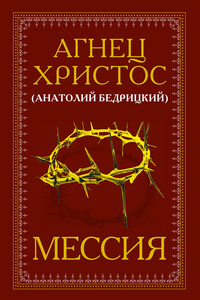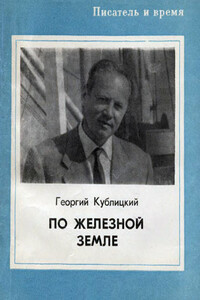Война, которая покончила с миром. Кто и почему развязал Первую мировую - [301]
(London, 1922)
Schorske, C., Fin-de-Siucle Vienna: Politics and Culture (New York, 1981)
Sharp, A., Anglo-French Relations in the Twentieth Century: Rivalry and Cooperation (London, 2000)
Shatsillo, K. F., Ot Portsmutskogo Mira k Pervoi Mirovoi Voine (Moscow, 2000)
Showalter, D., «From Deterrence to Doomsday Machine: The German Way of War, 1890–1914», Journal of Military History, vol. 64, no. 3 (2000), 679–710
–, «Railroads, the Prussian Army, and the German Way of War in the Nineteenth Century», in T. G. Otte and K. Neilson (eds.), Railways and International Politics: Paths of Empire, 1848–1945 (New York, 2006), 21–44
Shukman, H., Rasputin (Stroud, 1997)
Smith, D., One Morning in Sarajevo: 28 June 1914 (London, 2008)
Snyder, J., «Civil – Military Relations and the Cult of the Offnsive, 1914 and 1984», in S. E. Miller, S. M. Lynn-Jones, and S. van Evera (eds.), Military Strategy and the Origins of the First World War (Princeton, 1991), 20–58
–, The Ideology of the Offensive: Military Decision Making and the Disasters of 1914 (Ithaca, 1984)
Sondhaus, L., Franz Conrad von Hözendorf: Architect of the Apocalypse (Boston, 2000)
Soroka, M., «Debating Russia's Choice between Great Britain and Germany: Count Benckendorf versus Count Lamsdorff 1902–1906», International History Review, vol. 32, no. 1 (2010), 1–24
Sösemann, B., «Die Tagebücher Kurt Riezlers. Untersuchungen zu Ihrer Echtheit und Edition», Historische Zeitschrift, vol. 236 (1983), 327–69
Spender, J. A., The Public Life (London, 1925)
Spitzemberg, H. v., Das Tagebuch der Baronin Spitzemberg. Aufzeichnungen aus der Hofgesellschaft des Hohenzollernreiches (Göttingen, 1960)
Spring, D. W., «Russia and the Franco-Russian Alliance, 1905–14: Dependence or Interdependence?», Slavonic and East European Review, vol. 66, no. 4 (1988), 564–92
Stargardt, N., The German Idea of Militarism: Radical and Socialist Critics, 1866–1914 (Cambridge, 1994)
Steed, H. W., Though Thirty Years, 1892–1922: A Personal Narrative (London, 1924)
Steinberg, J., Bismarck: A Life (Oxford, 2011)
–, «The Copenhagen Complex», Journal of Contemporary History, vol. 1, no. 3 (1966), 23–46
–, «The Novelle of 1908: Necessities and Choices in the Anglo-German Naval Arms Race», Transactions of the Royal Historical Society, vol. 21 (1971), 25–43
–, Yesterday's Deterrent: Tirpitz and the Birth of the German Battle Fleet (New York, 1965)
Steinberg, J. W., All the Tsar's Men: Russia's General Staf and the Fate of the Empire, 1898–1914 (Baltimore, 2010)
Steiner, Z., The Foreign Office and Foreign Policy, 1898–1914 (Cambridge, 1969)
–, «Grey, Hardinge and the Foreign Offi, 1906–1910», Historical Journal, vol. 10, no. 3 (1967), 415–39
–, «The Last Years of the Old Foreign Office, 1898–1905», Historical Journal, vol. 6, no. 1 (1963), 59–90
Steiner, Z. and Neilson, K., Britain and the Origins of the First World War (London, 2003)
Stengers, J., «Belgium», in K. M. Wilson (ed.), Decisions for War, 1914 (London, 1995), 151–74
Stevenson, D., Armaments and the Coming of War: Europe, 1904–1914 (Oxford, 1996)
–, «Militarization and Diplomacy in Europe before 1914», International Security, vol. 22, no. 1 (1997), 125–61
–, «War by Timetable? The Railway Race before 1914», Past and Present, vol. 162, no. 2 (1999), 163–94
Stieve, F. (ed.), Der diplomatische Schriftwechsel Iswolskis, 1911–1914 (Berlin, 1924)
Stone, N., Europe Transformed, 1878–1919 (Glasgow, 1983)
–, «Hungary and the Crisis of July 1914», Journal of Contemporary History, vol. 1, no. 3 (1966), 153–70
–, «V. Moltke – Conrad: Relations between the Austro-Hungarian and German General Staff, 1909–14», Historical Journal, vol. 9, no. 2 (1966), 201–28
Strachan, H., The First World War, vol. I: To Arms (Oxford, 2001)
Stromberg, R. N., «The Intellectuals and the Coming of War in 1914», Journal of European Studies, vol. 3, no. 2 (1973), 109–22
Sweet, D. W., «The Bosnian Crisis», in F. H. Hinsley (ed.), British Foreign Policy under Sir Edward Grey (Cambridge, 1977), 178–92
Szamuely, T., The Russian Tradition (London, 1988)
Tanenbaum, J. K., «French Estimates of Germany's Operational War Plans», in E. R. May (ed.), Knowing One's Enemies: Intelligence Assessment before the Two World Wars (Princeton, 1986), 150–71
Tanner, M., Nietzsche: A Very Short Introduction (Oxford, 2000)
Taube, M. d., La Politique russe d'avant-guerre et la fin de l'empire des tsars (1904–1917): Mémoires du Baron M. de Taube … (Paris, 1928)
Taylor, A. J. P., The Struggle for Mastery in Europe (London, 1998)
Thaden, E. C., Russia and the Balkan Alliance of 1912 (University Park, PA, 1965)
Thompson, J. L., Northcliff: Press Baron in Politics, 1865–1922 (London, 2000)
Tirpitz, A. v., My Memoirs (London, 1919)
–, Politische Dokumente, vol. I: Der Aufbau der deutschen Weltmacht (Stuttgart, 1924)
Tombs, R. and Tombs, I., That Sweet Enemy: The French and the British from the Sun King to the Present (New York, 2008)
Travers, T. H. E., «Technology, Tactics, and Morale: Jean de Bloch, the Boer War, and British Military Thory, 1900–1914», Journal of Modern History

В книге рассказывается история главного героя, который сталкивается с различными проблемами и препятствиями на протяжении всего своего путешествия. По пути он встречает множество второстепенных персонажей, которые играют важные роли в истории. Благодаря опыту главного героя книга исследует такие темы, как любовь, потеря, надежда и стойкость. По мере того, как главный герой преодолевает свои трудности, он усваивает ценные уроки жизни и растет как личность.

Основным спорным вопросом в познании истины бытия окружающего материального мира является вопрос о существовании Бога. Если Бог существует, то сотворение жизни на Земле Богом, описанное в Книге Моисея, должно иметь научное подтверждение, так как творение Бога по изменению материи могло происходить лишь по физическим законам, которые присущи материи, и которые Бог изменить не может. Материя существовала всегда, то есть, бесконечно долго в прошлом времени, а Бог развился в какое-то время из материи, возможно даже по теории Дарвина.

"Литературная газета" общественно-политический еженедельник Главный редактор "Литературной газеты" Поляков Юрий Михайлович http://www.lgz.ru/.

В книге рассказывается история главного героя, который сталкивается с различными проблемами и препятствиями на протяжении всего своего путешествия. По пути он встречает множество второстепенных персонажей, которые играют важные роли в истории. Благодаря опыту главного героя книга исследует такие темы, как любовь, потеря, надежда и стойкость. По мере того, как главный герой преодолевает свои трудности, он усваивает ценные уроки жизни и растет как личность.

"Литературная газета" общественно-политический еженедельник Главный редактор "Литературной газеты" Поляков Юрий Михайлович http://www.lgz.ru/.

Курская магнитная аномалия — величайший железорудный бассейн планеты. Заинтересованное внимание читателей привлекают и по-своему драматическая история КМА, и бурный размах строительства гигантского промышленного комплекса в сердце Российской Федерации.Писатель Георгий Кублицкий рассказывает о многих сторонах жизни и быта горняцких городов, о гигантских карьерах, где работают машины, рожденные научно-технической революцией, о делах и героях рудного бассейна.